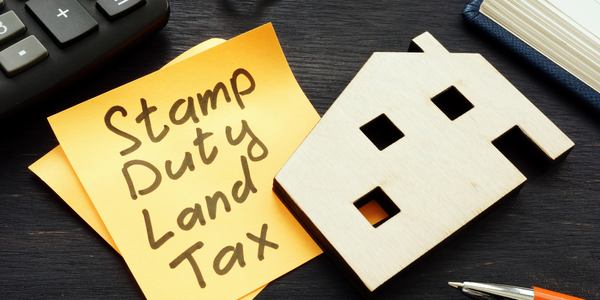Whether you’re working from home out of necessity or using your home as your principal place of business, it’s important you’re clear on both the tax implications – Capital Gains Tax on the sale of your property - and tax deductions that could impact you. Here’s a guide to each of these scenarios.

Occupancy versus running costs
When it comes to tax deductions, Australians who are now working from home need to be aware of the differences between occupancy costs and running costs.
Running costs are the additional costs incurred when using your own home for work purposes – things like heating and lighting, internet and equipment. These are tax deductible even if you don’t have a dedicated space for your business in your home.
Occupancy costs, on the other hand, relate to the cost of the property – things like rent or mortgage interest, council rates, land taxes, and home and contents insurance. Occupancy expenses can only be claimed if part of your home has been set aside specifically for work purposes.
Temporarily working from home
If you’re working from home because you’re unable to access your usual place of work – perhaps because of the public health crisis due to COVID-19 – you cannot claim occupancy costs. Furthermore, your home will generally not be subject to capital gains tax when it is sold because your home is not your principal place of work.
However, you may be able to claim the running costs for your home office using one of the following methods:
ATO Fixed Rate of 52 Cents Per Hour
For each hour you work from home, you may be able to claim 52 cents. To do so, you will need to keep a record or diary of actual hours spent working from home.
Actual Running Costs
If you have a dedicated work area (such as a study), you will need to records of the following to use the actual running cost method:
- Total running expenses for the year for each cost.
- Calculation of the proportion of total floor area that relates to your dedicated work area.
- Calculation of the percentage of the year that you used that part of your home exclusively for work.
If you do not have a dedicated work area, additional expenses such as lighting, heating and cooling should be calculated by determining the actual cost of running each unit you used per hour and multiplying that by the hours you spent working at home.
Your home is your principal place of work
If your home is your principal place of work, in addition to claiming a tax deduction for running costs (as above), you may also claim a portion of your occupancy expenses calculated based on the floor area of your home office, but you must first satisfy certain criteria:
- Your home is your principal place of work (that is, no other location is provided to you by your employer)
- You have part of your home set aside exclusively as a place of business that is unlikely to be suitable for domestic use
- It is clearly identifiable as a place of business (e.g. signage identifying your business at the front of your house)
Capital Gains Tax
While the family home is generally exempt from Capital Gains Tax when sold, if your home is you principal place of work and you meet the above criteria, a portion of your home will be subject to CGT when you sell because it has been used to generate an income.
Even if you choose not to claim home occupancy costs in your income tax return, you will still be liable for Capital Gains Tax when you sell your home if you used it for business purposes. CGT will only apply for those periods when the home was used for business purposes, regardless of how long it has been owned.
The percentage of the capital gain that is subject to tax is generally based upon the floor area of the home that has been set aside for business, and us usually the same as the percentage for which a mortgage interest deduction can be claimed, at around 10 per cent.
CGT won't apply if:
- You operated your business from a rented home
- You didn't have an area specifically set aside for your business activities
- You operated your business through a company or trust
The tax implications and potential deductions for those working from home can be tricky to understand and calculate, so it’s best to consult with your accountant or tax specialist if you are unsure about any tax aspect.
For any other financial advice pertaining to your mortgage, contact a Mortgage Express broker today.
While all care has been taken in the preparation of this publication, no warranty is given as to the accuracy of the information and no responsibility is taken by Finservice Pty Ltd (Mortgage Express) for any errors or omissions. This publication does not constitute personalised financial advice. It may not be relevant to individual circumstances. Nothing in this publication is, or should be taken as, an offer, invitation, or recommendation to buy, sell, or retain any investment in or make any deposit with any person. You should seek professional advice before taking any action in relation to the matters dealt within this publication. A Disclosure Statement is available on request and free of charge.
Finservice Pty Ltd (Mortgage Express) is authorised as a corporate credit representative (Corporate Credit Representative Number 397386) to engage in credit activities on behalf of BLSSA Pty Ltd (Australian Credit Licence number 391237) ACN 123 600 000 | Full member of MFAA | Member of Australian Financial Complaints Authority (AFCA) | Member of Choice Aggregation Services.





